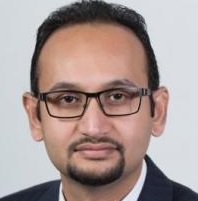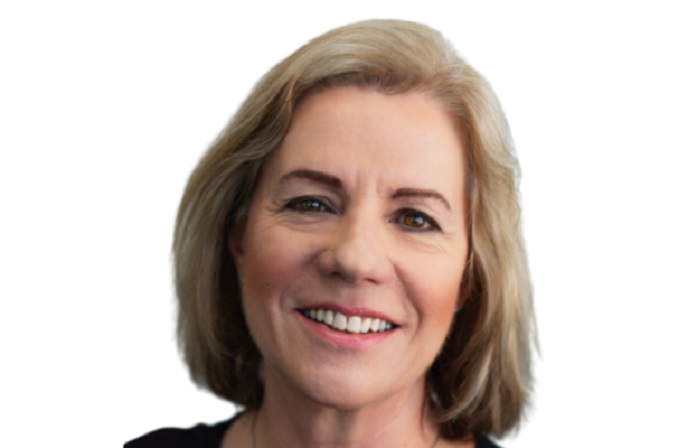
FST Media: What are your IT priorities for the next 12 to 18 months?
Muhammad: Having completed our core system replacement project in 2013 our focus is now twofold – driving business enablement through our digital strategy, and enhancing technology capability via the utilisation of technology industry advances such as cloud and SAAS, while embedding a strong innovation mindset.
This year we have implemented a fully responsive all-device online presence with the new racq.com.au sites. By the end of the year, we will have all development and test activities operating in the AWS cloud across the breadth of our systems. We are rolling out tablets to our roadside patrols and our first Google glass app will pilot before the end of the year.
Consolidation of production infrastructure has been a priority and our Oracle Supercluster will be implemented in November with production for all insurance and roadside applications running on it. In 2015, we will complete the implementation of our Microsoft Dynamics ERP, continue to enhance our digital capability with end-to-end fulfilment, provide a new app to our members, and see the first few of our new insurance offerings enter the market as we leverage the capabilities of our Guidewire Suite.
FST Media: What technology or innovation flying under the radar is destined to shake up the insurance industry?
Muhammad: Telematics and its application towards usage and behaviour based insurance has already started a shift in CMV insurance. Adoption in Australia has been slow, but we are seeing a number of really interesting models emerge overseas. More profound disruption will arise from recent innovations like driverless cars as this model changes who to assess for risk in underwriting. Should the burden of insurance not live with the manufacturer in such an arrangement, and is that going to lead to some integration between the two industries?
More fundamentally though, companies that are utilising technology to integrate themselves into their customer’s lives in a meaningful way, as well as building the ability to innovate and react to the changes with agility are going to win out in the longer run. These will be the companies that can react to disruptions and will be afforded longer lead times by their customers in the event of such a change. If you are not a disrupter yourself, developing a well-integrated ecosystem is one of the best defensive strategies; – that is where the better financial services companies are turning to and that is what forms the foundation of our technology strategy at RACQ to help future proof our organisation.
FST Media: What challenges has RACQ overcome in the implementation of the new core system, Guidewire, and how will you measure its success?
Muhammad: A core system implementation exercise in any financial services company is a major undertaking, with challenges ranging from product selection to implementation planning, and scope management to user migration. The background to RACQ’s implementation was our buyout of RACQI (RACQ Insurance) from our JV partner Suncorp. This meant that we were undergoing an organisational integration at the same time as changing our core systems and implementing a CRM system. Over the course of the two years of this programme, technology within RACQ went from a small group to a now sizable operation with a well-structured operating model and roughly 50 projects in flight.
The success of the implementation is evident from the seamless transition of our customer base to this new platform – which has been operating now for more than a year. The next phase of our strategy is utilising our core system to implement some exciting new products – watch this space.
FST Media: What are the expected benefits of RACQ’s cloud adoption and how will you address security concerns?
Muhammad: The rapid wave of change that we have seen in this space is probably the most fundamental shift in the technology industry in a while. Many areas of initial concern such as security, jurisdiction, privacy and connectivity, which were commonly held to be issues, have been comprehensively resolved. Unfortunately regulation, legislation and public perception are still catching up.
Our approach has been to establish the appropriate disciplines while transitioning gradually to this new model. Our journey has started off with all of our development and testing environments moving to the AWS cloud, while retaining our systems or records on premise.
The agility that comes with this model is what makes cloud adoption an integral tenet of RACQ technology’s long term strategic vision. In many companies the initial cost and time required to set up all the relevant technology environments to enable the commencement of a project can derail a business case from the outset. We saw the benefits of cloud adoption in this space recently at the start of our ERP platform implementation – where the cloud based cost for the environments is only expected to be between 5-10 per cent annually of the original estimated capex required to own the infrastructure for the implementation.
FST Media: What can we expect next from RACQ’s online channel and how important is it to ensure a seamless customer experience across all channels?
Muhammad: We realised we were lagging behind in this space as our focus was towards the core system programme, but RACQ’s revamped web presence, which has gone online recently has put us back in the game, if not ahead of many competitors. This has been implemented on a completely new CMS, and employs progressive rendering capabilities to adjust to the many devices used by our customer base. The focus of this revamp has been user centric design and we have learnt a lot of techniques which we intend to carry through into future projects in this and other domains. External reviews that we have commissioned suggest that the new sales process is on par with or exceeding best practice in streamlined processing and user friendliness.
Most companies talk about seamless customer experience across all channels – but at RACQ our commitment is to make our services available to our customers in their channel of choice. In many cases this has meant retaining our physical presence in remote locations, and not pushing our customers into more cost-effective channels. Being owned by our members helps make this a much easier decision than it would have been in a shareholder owned company.
FST Media: How will RACQ’s upcoming patrol app for Google glass change the game for the motoring insurance industry? What role wills technologies such as Google cardboard and virtual reality tools play in the future of insurance?
Muhammad: In addition to providing insurance, RACQ is the motoring assistance operator in QLD, serving roughly a million customers on the roads every year. With this comes a huge safety challenge as we have little control over the environment in which our members may breakdown. Technologies like Google Glass provide a way of connecting the patrol back to base, exchange information and presenting information visually in a hands-free manner while the patroller is working on the vehicle. This is similar to many of the pilots being trialled in various fire and ambulance departments, predominantly in the US.
Similarly, RACQ campaigns and advocates on behalf of motorists, and plays a key role in driver education and safety awareness across Queensland. While virtual reality tools have originated from the gaming industry, there is a great opportunity to apply these technologies towards safety training and education and to understand driver behaviour in various situations.
FST Media: What is proving to be your most effective customer acquisition channel and why?
Muhammad: Our acquisition is still dominated by the traditional channels of call centre and retail, with online growing but not currently overtaking the other channels. With the recent launch of a completely streamlined online capability, we are seeing a surge in online conversions, but it is too soon to extrapolate that data meaningfully.
As a brand, we are quite comfortable with this, i.e. we will engage with our customers in a channel of their choice. We are known for our personal touch and our service ethos, and the channels that best allow us to showcase these values will always be the ones that have human interaction. The challenge for us in the online space is to harness the right technologies to enhance the human touch. Our new implementation has introduced click to chat, and technologies like click to video chat might be a natural extension of that capability.
FST Media: How do you encourage a culture of innovation in your team?
Muhammad: Innovation is not something that can be compartmentalised within a select portion of an organisation, but it also cannot be nurtured within a culture of collective apathy. The best way to balance these two extremes is to not only encourage the generation of ideas, but also to provide mechanisms of progressing these ideas to fruition. Often this will mean providing the headroom, priority and funding, execution processes and the right governance structure. We are using the Google Glass pilot, the patrol tablet rollout and other similar projects to establish the internal structures to be able to support innovation consistently.
Building a culture is all about getting into a virtuous cycle and the first few implementations are important, as these are as much about building internal structures and momentum as meeting external demand.
FST Media: How significant is the role of technology in your day-to-day life?
Muhammad: Is there a part of anyone’s day-to-day life that is not touched by technology? It is the silent partner in practically everyone’s life now because it provides the tool(s) through which we engage, communicate, travel, shop and sometimes even view the world we live in. My phone, tablet and laptop are integral parts of my day-to-day and it would be impossible to keep on top of everything without these great tools. That said, I still appreciate reading a good book in paper – swiping left is just not as gratifying as turning a real page.
FST Media: Every leader has a legacy they wish to be remembered for, what is yours?
Muhammad: I started out in the technology industry excited about solving challenging and complex technical problems – but the more time I spent in the industry the more I realised that the real challenge is harnessing the power of one’s people – and the technology tends to solve itself. I love building strong teams around me, and enabling them to do their best work. I strongly believe there cannot be a better legacy for a leader.





